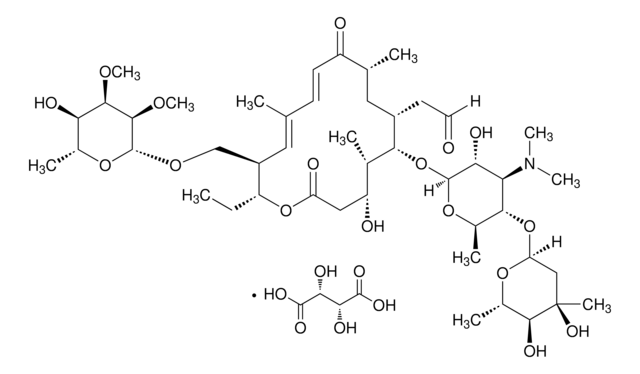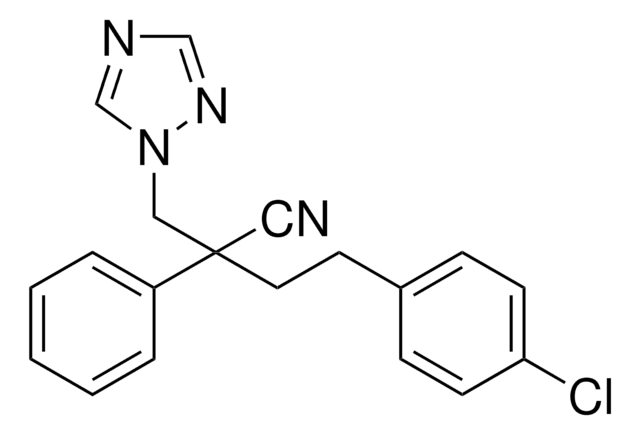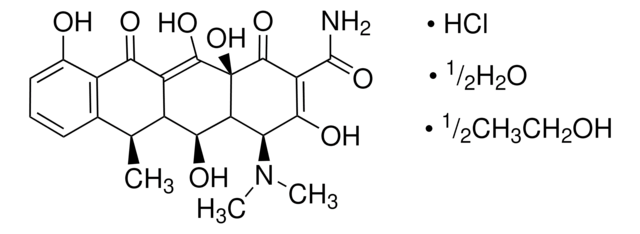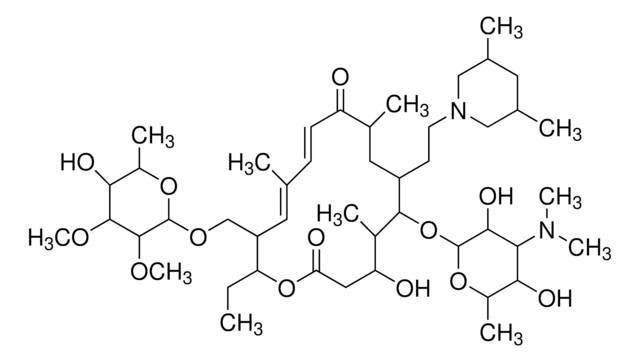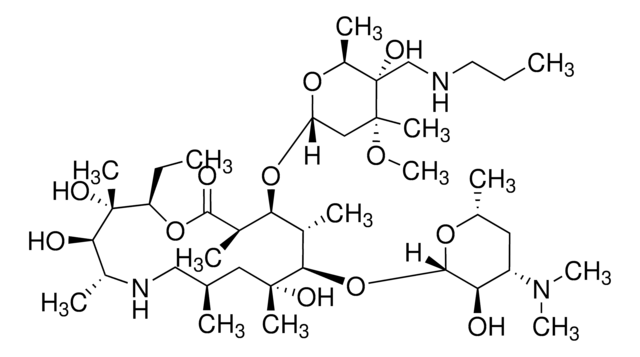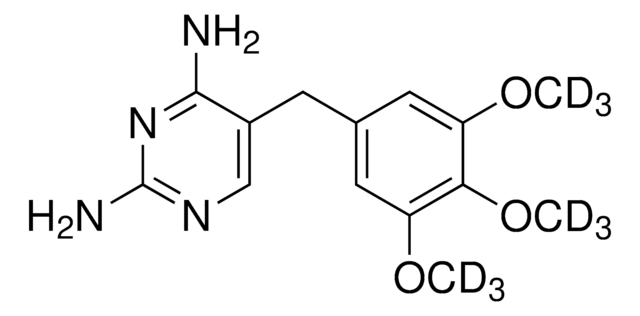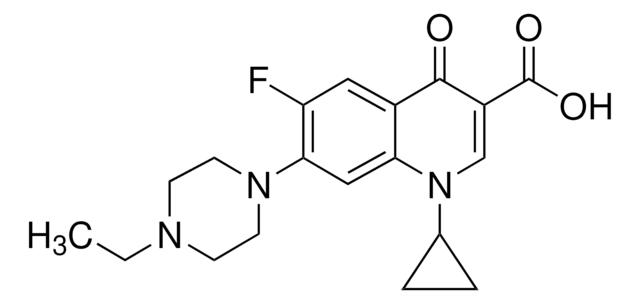32375
Valnemulin hydrochloride
VETRANAL®, analytical standard
About This Item
Recommended Products
grade
analytical standard
product line
VETRANAL®
technique(s)
HPLC: suitable
gas chromatography (GC): suitable
application(s)
forensics and toxicology
veterinary
format
neat
storage temp.
−20°C
SMILES string
CC(C)[C@@H](N)C(NCC(C)(C)SCC(O[C@H]1[C@](C)([C@@H]2C)[C@@]3([H])[C@@](CC2)(CCC3=O)[C@@H](C)[C@H](O)[C@](C)(C=C)C1)=O)=O.Cl
InChI
1S/C31H52N2O5S.ClH/c1-10-29(8)15-22(38-23(35)16-39-28(6,7)17-33-27(37)24(32)18(2)3)30(9)19(4)11-13-31(20(5)26(29)36)14-12-21(34)25(30)31;/h10,18-20,22,24-26,36H,1,11-17,32H2,2-9H3,(H,33,37);1H/t19-,20+,22-,24-,25+,26+,29-,30+,31+;/m1./s1
InChI key
MFBPRQKHDIVLOJ-AFFLPQGKSA-N
Looking for similar products? Visit Product Comparison Guide
Related Categories
Application
Legal Information
Storage Class Code
11 - Combustible Solids
WGK
WGK 3
Flash Point(F)
Not applicable
Flash Point(C)
Not applicable
Choose from one of the most recent versions:
Certificates of Analysis (COA)
Don't see the Right Version?
If you require a particular version, you can look up a specific certificate by the Lot or Batch number.
Already Own This Product?
Find documentation for the products that you have recently purchased in the Document Library.
Our team of scientists has experience in all areas of research including Life Science, Material Science, Chemical Synthesis, Chromatography, Analytical and many others.
Contact Technical Service